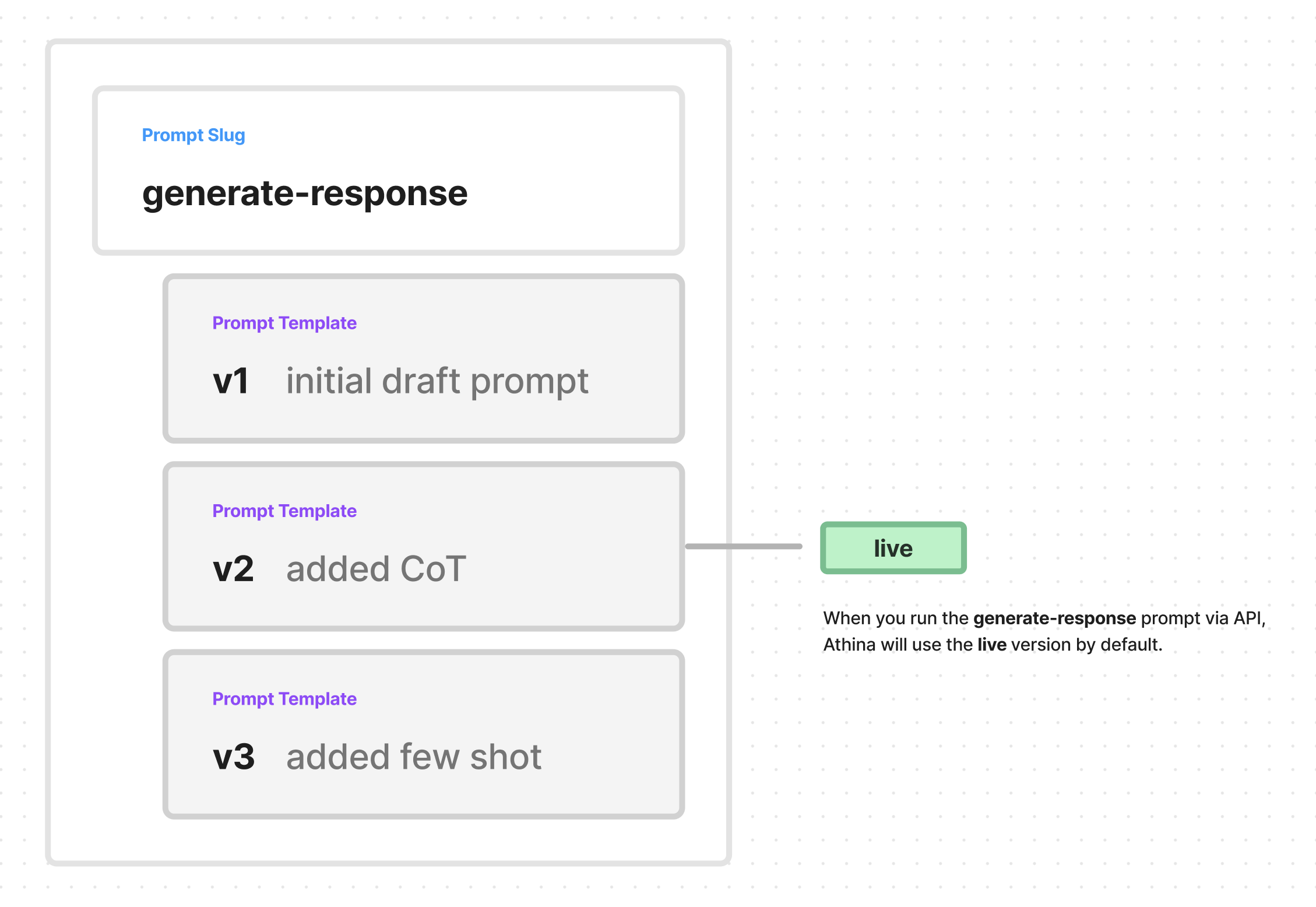
- prompt_slug: This is the name of your prompt. It must be unique for your workspace. You can see the prompt slug in the URL and in the sidebar in the playground.
-
prompt_template: This is a versioned prompt template. Every
prompt_templatemust belong to aprompt_slug. Draft prompts are also stored asprompt_templatebut without an associatedversion. - version (integer): This is the current version of the prompt template. Versions are stored as auto-incrementing integers. When you commit a prompt, a new version is created.
-
is_live: When you deploy a
prompt_template, it is marked aslive. Theliveprompt is the one that is used when you run the prompt via API (unless overridden with an explicit version). -
prompt_execution: This refers to an individual execution (or run) of a
prompt_templatein the playground.
A saved
prompt_template in Athina looks like this:

